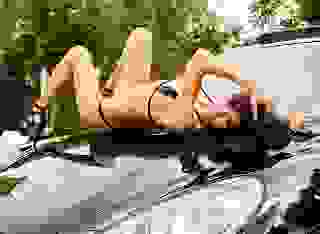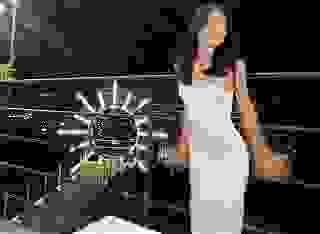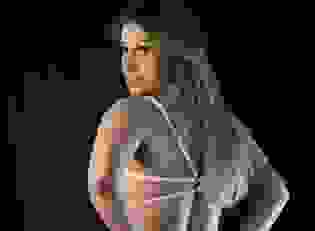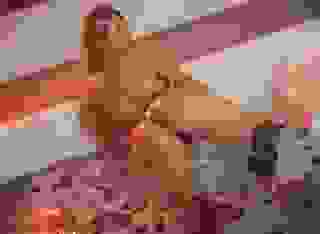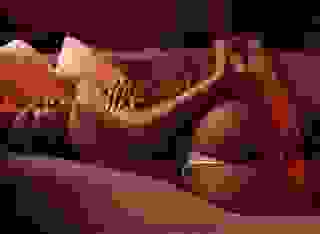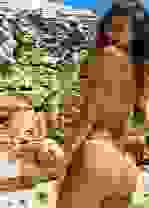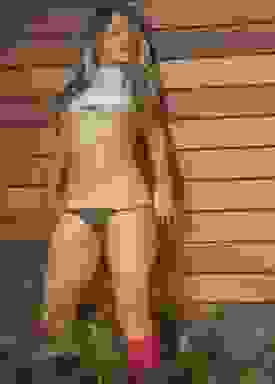All Comments on 'HV-2 Hazardous Cargo'
by Twistedpleasures
- 4 Comments
Okay, this story had my head spinning for the first page, until I realized it was actually the pre-cursor of the one posted before. HV-3 had Rewan as a full-fledged crew member, but I forgot the number in the title, so was put off at first.
So, what now? Are you going to post HV-1? The actual fitting out and launching of the ship? Or can we expect a continuation of the story?
Other than that complaint, I find this to be a very engaging story, with believable characters. I look forward to your next offering.
Thanks kuhpa! I probably should have telegraphed the chronology more! No, next I'll probably be going forward.
I'm writing these off a rough outline, finishing the bits that are most exciting to me to do next.
Hi there!
I'm going to preface this by saying that I missed reading HV-3. (I didn't even realize it was supposed to be part of a series; just changing the number following HV isn't intuitive.) Here are my impressions from reading this as a standalone piece. I would still consider them valid, because they'll be addressing issues that you can work on smoothing over in HV-1.
I've spent my life reading, studying, and devoting myself to the craft of science fiction. I volunteer time showing aspiring youth writers the ins-and-outs of sci-fi, and have had the opportunity to teach it at a college level as well. (Technically the class is science fiction and fantasy, but the writing techniques you learn in the "fantasy" section of the class are applied much more broadly.)
Sci Fi is a tricky thing to write, because the story is operating under completely different rules from our own, in a different way than other genres. Let's say you're writing a Western, for example:
Two men ride into town on their horses, disembark and head for the bank, before the sheriff walks out. The three men wait in a breathless standoff, and, as a tumbleweed bumbles past, one draws his gun. Two shots wring out and, when the dust settles, the outlaws are dead.
Anybody who has grown up exposed to western literature will be completely able to understand the scene above. We know that a horse is a four-legged animal that people ride. We know that, in a vacuum, a gun is a weapon that fires a projectile. One person might imagine a Colt 45 and another might see a Glock, but the understanding of, "a gun," is in our culture's collective unconscious.
However, this all changes when you're writing sci-fi. Every SINGLE rule goes out the window, because our collective unconscious can no longer apply. The characters probably aren't on earth, they may live in a post-scarcity society, maybe they have an alien language that you want to transcribe. (As a side note, science fiction itself is beginning to develop a collective unconscious - we could all describe a phaser despite never having seen one - and you can pull large elements of the greater collective unconscious back into the story, you just have to actually make sure to show your audience that, not just assume they'll know.)
The point is, the struggle that every science-fiction writer faces that many others don't is that they have to cue their reader in on every single facet of their story, from the time period, to the technology, to the way the aliens look and act and smell, to the societal norms. They have to do all this while still actually writing a plot, and without just giving a huge exposition dump, because that's one of the worst things you can do to a reader.
Now, your work definitely avoids having an exposition dump so far, but holy shit do you give me ZERO information about what the hell is going on. I'm just going to list a few questions, in order of huge plot holes to small:
- The ship is made of stone and wood. And... Is in space. And somehow doesn't leak.
- These materials can be animated (like the captain's chair) or enchanted... Relics don't use technology, but also aren't controlled by magic within the user - they're just magic items you can turn on or off? What are their limits? How common are they?
- How does the staff not know if their vessel is a relic or not? Either it was built or was unearthed, wasn't it?
- What are void bubbles? Are they helmets? Some sort of force field projection? If the latter, how can the people inside interact with things?
- The furry aliens (sorry, I already forgot the name of them): what do they look like? I assumed they were giraffes with manes. How do they act? (Or did you just make them look different and they're not really different in any way?) Where did they come from? Does the home world in this story have multiple sentient species?
- Poptoes. What are they? Are they potatoes? Fruit? Synthetic meat grown on a plant? Are they creamy? Crunchy?
I have more questions, but this should serve to illustrate the point: you're throwing words and 'things' at your readers without any explanation of wtf these things are. This is a problem.
It's also something I see commonly, so let me try an explain what I think is probably going on: when you sit down and you write a scene in this story, you're visualizing what's happening as though it was a scene in a movie or a TV show. - you already know the details and are writing a description of the scene. (And, in fact, that feels like what's going on, from the reader's side of things. I thought this would make for a cool TV show, since I'd get to see what everything was.)
The trouble is, like I said above, your readers don't have the same perspective that you do. You're the only person who currently has the collective unconscious that understands the terms you're using and the world your story is set in. Your job, as a sci-fi writer, is to share that knowledge with your reader, so that we don't feel lost and abandoned among the paths of mental masturbation that none of us have been given a map to.
In short: more description; fewer unique words (if possible); and remember that the audience can't see the picture in your head, you have to paint it for them.
However, don't get too down on yourself. I'm not trying to trash your writing; in fact, I think it's pretty good. I'm intrigued by the worldbuilding you've got so far (it's reminiscent of spelljammer), and I would lile to see where you take it. I just would like to also better understand what's happening while I do.
First-off: My profusion of thanks for such a long and considered response. The simple fact that this piece merited your valuable time for such a lengthy reply warms my heart.
Second: I think you've hit on a crux of what I'm going for with this series and I would be infinitely thankful for your continued readership on whether I am succeeding or not. Namely, I intend to present a universe from the perspective of the characters--that is to say: that which is normal and accepted to them is presented as normal and accepted, and that which is strange and unfamiliar is treated as such. Obviously, if the gulf of difference between the characters and readership is too far in the wrong ways as to lose the thread of the story, then that is an indefensible failing. So to take one of your examples for discussion:
You identify that you don't know precisely what the animal was--granted, you are not given enough information to do so. Does that lack of complete understanding obstruct the purpose of this piece? Put broadly: presenting the characters in media res with the interposition of a new character. The beast merely serves to contextualize Fathema's character for the time being, and it seems a waste to burden the narrative with exposition about why it was aboard or the precise nature of its anatomy or every detail of its appearance. Perhaps it will have a better time to feature, but it would seem odd to shoehorn that detail in now, from my perspective.
Obviously, as a writer, I have my own purposes for what I explain and what I don't yet, but as a writer, you are *also* right that I am in the poorest position to judge what missing information might cause a stumbling block to my readership. So I am absolutely ecstatic to rectify where my paucity of explanation has erred. Would you say that each of those points that you highlight diminish your enjoyment of the work:
Ship's material
Nature of relics
Void bubbles
Linangi's nature
What IS a popto?
That is to say, that not immediately understanding their specifics causes you to come out of the story? If so, I will remove of explain them.
Obviously, to a degree, the understanding of these I would hope would accrete over time as I continue, but that should not stand in the way of smoothing each piece in its turn. If you have opportunity, I would be happy to discuss further on these points, especially as I continue to add to the universe.
The one thing in particular that I was interested in:
What caused you to question whether the crew knew if the ship was a relic or not? That was absolutely not something I intended ambiguity or lack of clarity on, and I'll be giving this chapter a critical eye to see where that misapprehension arose. If you can point me toward the confusing matter, though, that would facilitate its correction.
Once again, I can't thank you enough for your reading and assessment, Darksable, and I hope to beg a bit more of your time to round it out!
